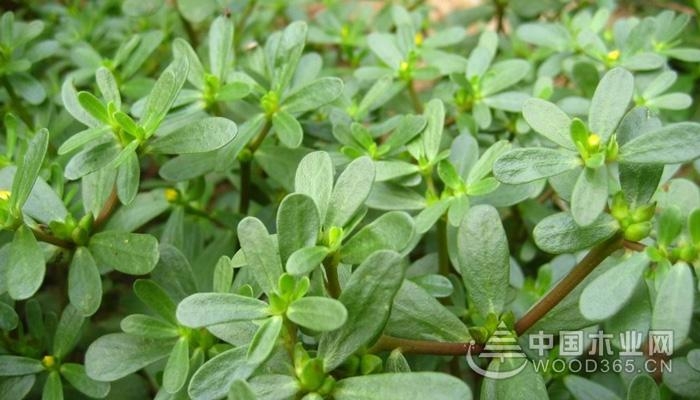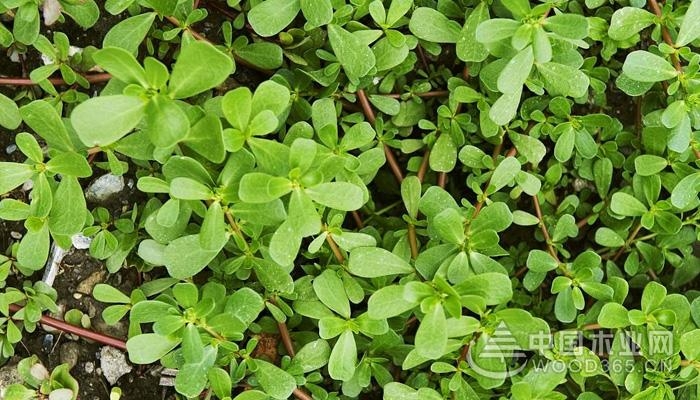Portulaca oleracea, the whole grass of the purslane, the purslane, is a dual-use plant for medicine and food. It has leaf green, stalk red, yellow flower, root white, and black, so it is also called "five rows of grass." It is a wild vegetable that has been recorded in ancient books and has contributed to humanity. The folks also call it "longevity dishes" and "long-lived dishes." China's north and south are all produced. Sexually fertile soil, drought-tolerant and resistant to drought, strong in life, born in vegetable gardens, farmland, roadside, common weeds in the field. Widely distributed in temperate and tropical regions of the world.

The efficacy and function of purslane
Sexual cold, sour taste, return to the liver, large intestine. It has the functions of clearing away heat and dampness, detoxification and swelling, anti-inflammatory, thirst-quenching and diuresis.
1. Lee water, swelling, lowering blood pressure
Portulaca oleracea contains a large amount of potassium salt, which has a good effect of reducing water swelling. Potassium ions can also directly act on the blood vessel wall to expand the blood vessel wall and prevent thickening of the arterial wall, thereby reducing blood pressure.
2. Eliminate dust
Purslane can eliminate dust and poison, prevent phagocytic cell degeneration and necrosis, prevent lymphatic inflammation and prevent fibrotic changes, prevent the formation of sputum nodules, and have a certain effect on vitiligo.
3. Prevention of ulcers
Horse teeth also contain more carotene, which can promote the healing of ulcer disease.
4. Sterilization and anti-inflammatory
Purslane has a strong inhibitory effect on Shigella, Salmonella typhi and Escherichia coli, and can be used for the adjuvant treatment of various inflammations. It is known as "natural antibiotics".
5. Prevention of heart disease
Purslane contains a rich Y-3 fatty acid, which can inhibit the production of serum cholesterol and triglyceride in human body, help increase the synthesis of prostaglandins in vascular endothelial cells, inhibit thrombocytosis of platelets, and decrease blood viscosity. It promotes blood vessel dilatation and can prevent platelet aggregation, coronary spasm and thrombosis, thereby preventing heart disease.

The nutritional value of purslane
Portulaca oleracea is also rich in SL3 fatty acids and vitamin A-like substances: SL3 fatty acids are essential for the formation of cell membranes, especially for brain cell membranes and ocular cell membranes; vitamin A-like substances can maintain normal epithelial tissues such as skin, cornea and membrane. Function, participate in the synthesis of rhodopsin, enhance the photoreceptive properties of the retina, and participate in many oxidation processes in the body.
Purchase of purslane
It is better to be small, tender, neat and fragrant, with many leaves, blue-green, and no impurities. When you buy purslane, it smells slightly, and the taste is slightly acidic and sticky. It is better to have small plants, tender and tender leaves, and greenish green.
Purslane storage
Can be dried.
Method of eating purslane
Portulaca oleracea is a wild vegetable that has been eaten by Chinese people for a long time. In summer and autumn, picking the leaves and leaves, young and juicy, remove the roots, wash and soften, gently squeeze out the juice, mix with people salt, rice vinegar, soy sauce, ginger, garlic, sesame oil and other condiments and seasonings. Eat cold dishes, delicious, smooth and delicious. You can also pancakes and make steamed food. The masses in many places in China still have the habit of washing, burning, chopping, drying and storing them as winter vegetables.
Dining Room Furniture ,Dining Set For 4,Tall Kitchen Table,Dining Table Bench Seat
shandong Changheng Wood Co.,Ltd , https://www.changhengwood.com